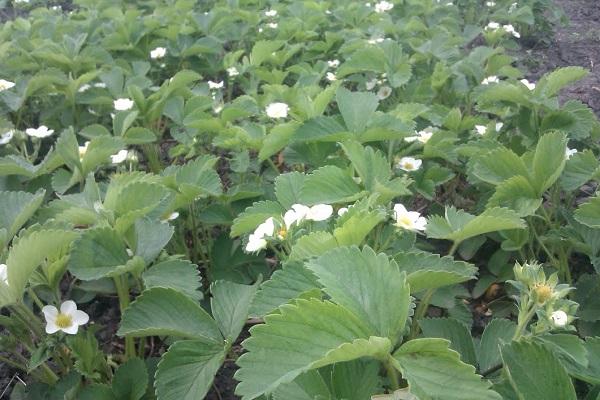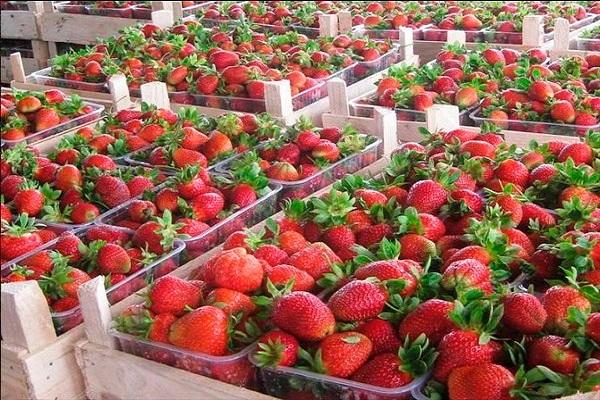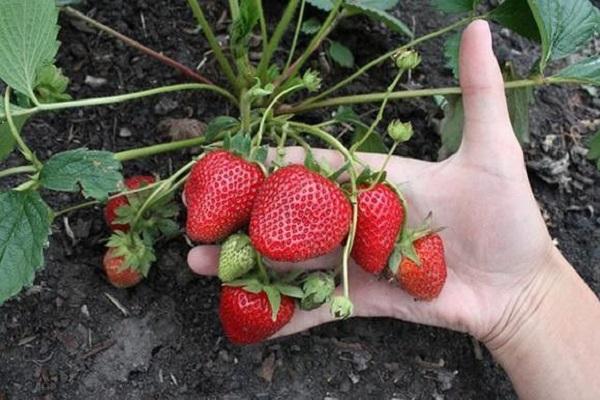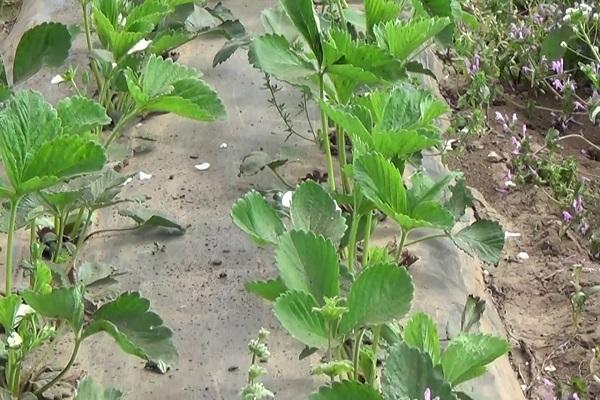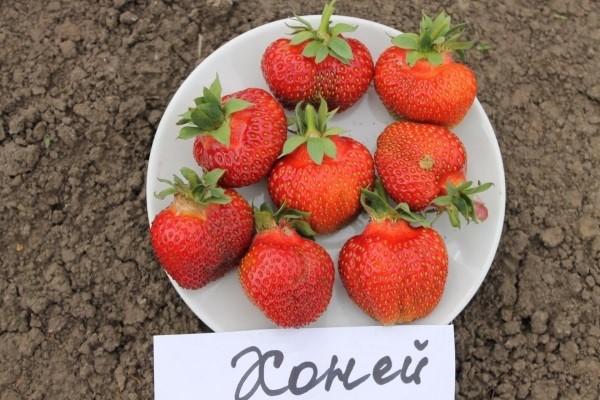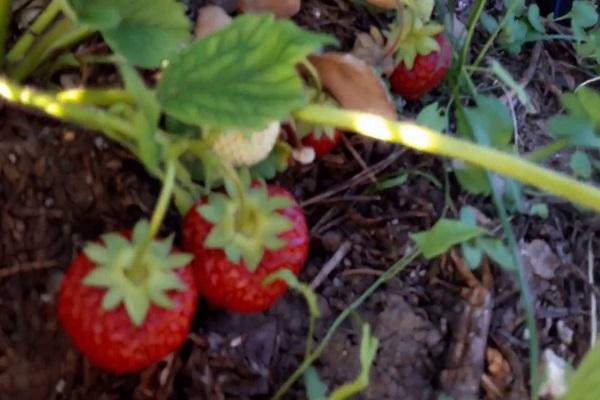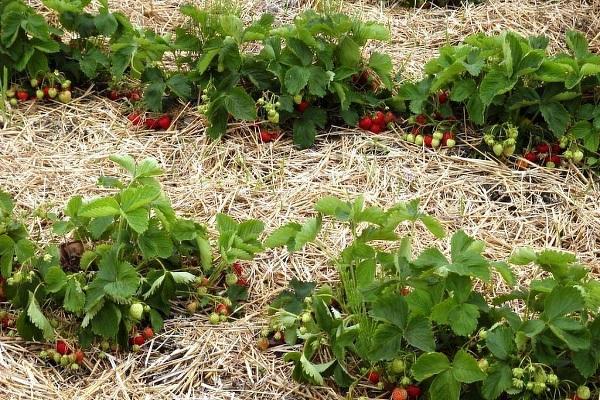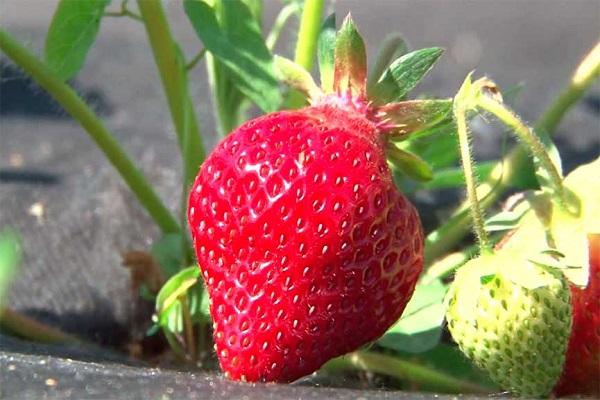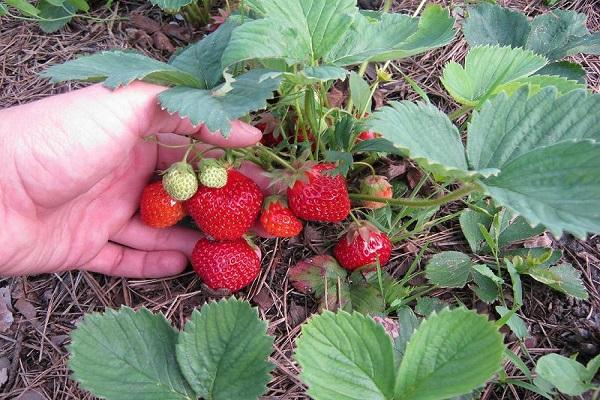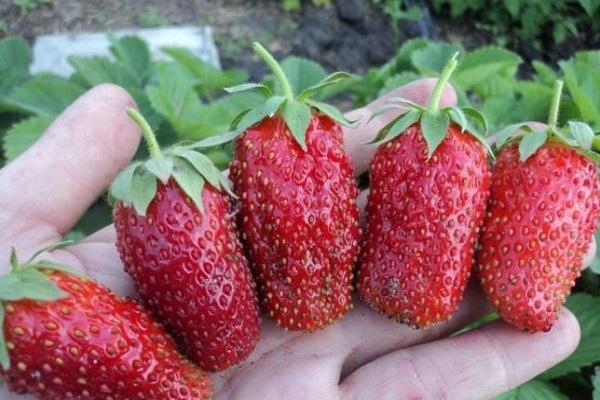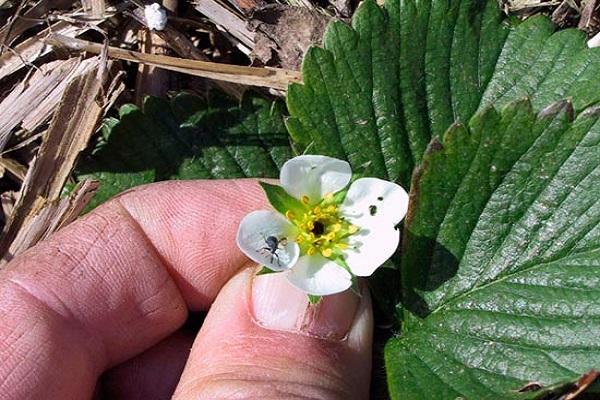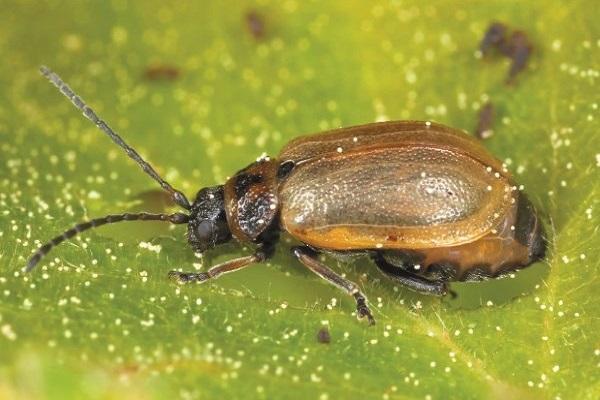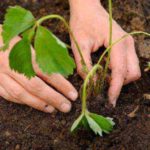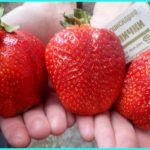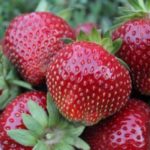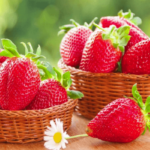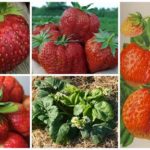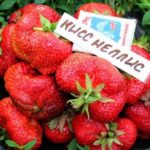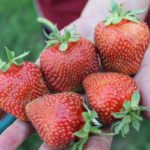The developed variety is named after the city of Honeoye. Obtained by crossing the Vibrant and Holiday varieties. Growing Honey strawberries requires following simple but important planting and care rules.
- Description of the variety and its characteristics
- Appearance of bushes and fruits
- When it blooms
- When does it yield
- Weather resistance
- Beginning of fruiting
- Shelf life and transportability
- Usage
- Regions of growth
- Advantages and disadvantages
- How to grow strawberries Honey
- Requirements for planting material
- Site selection and soil preparation
- Planting garden strawberries
- Nuances of care
- Watering
- Top dressing
- Mulching
- Preparing for winter
- Strawberry propagation
- Diseases
- Late blight wilt
- Gray rot
- Brown spot
- Powdery mildew
- Pests
- Strawberry whitefly
- Leaf beetle
- Nematode
- Cleaning and storage
Description of the variety and its characteristics
The varietal characteristics of a plant are what gardeners first pay attention to when deciding to grow one or another variety of strawberry. The taste characteristics of the berries, the plant’s resistance to disease, and the yield per bush are taken into account.
Appearance of bushes and fruits
The bush is compact, powerful, with a well-developed root system, up to 0.3 m high. Leaves grow up to 22 cm long. The bush has been growing actively since the second week of April. Strawberry flower stalks are strong and can support large berries. The weight of the fruit reaches 40 g. They are of a rich, bright red color and of medium density. The berries are sweet with a pleasant sourness and have a rich strawberry aroma. At the end of the season, the berries become smaller, but the taste and aroma become richer.
When it blooms
In mid-May, the strawberry beds are covered with a multitude of white flowers. When flowering lasts two weeks, 14-16 flowers are formed on the bush.
When does it yield
The berries ripen, depending on the place of growth, from mid-May to early June. When using growth stimulants and creating a greenhouse effect, strawberries will begin to bear fruit a couple of weeks earlier. The collection is carried out every 2-3 days. By the end of the season, there are fewer fruits, but the strawberries are more aromatic and sweet.
Weather resistance
Strawberries are unpretentious to external conditions. It tolerates heat well and can go without watering for 3-4 days. Tolerates low temperatures down to -18 OWITH.
Beginning of fruiting
This strawberry is considered a short day crop. Early variety. Under the film it ripens in late April - early May.In the southern regions, on open ridges, the first berries ripen in early May.
Shelf life and transportability
Transportability is one of the advantages of the variety. The fruits retain their marketable appearance for about 3 days. They tolerate transportation well.
Usage
In addition to using fresh berries, they are excellent for thermal processing and freezing. After defrosting, the strawberries retain a pleasant aroma. Jams made from it have an aroma and pleasant sourness.
Regions of growth
It grows well in the non-chernozem middle regions of Russia, the center and south of Ukraine, and Belarus. Since the bushes are sensitive to a long absence of moisture, it is better not to grow in dry areas.
Advantages and disadvantages
The variety has the following positive aspects:
- the yield, subject to agricultural technology, is 1.2 kg per bush;
- bears fruit consistently for several years;
- hardy, can survive even with improper care;
- tolerates hot weather, drought, waterlogging;
- has average immunity to some diseases;
- tolerates temperature drops down to -18 OWITH;
- The presentation is preserved for 3 days.
The disadvantages of this variety are minor:
- despite good immunity, strawberries are prone to diseases of the root system;
- requires the correct water regime; when over-watered, rotting occurs;
- When stored for more than 3 days, the berries darken and become not juicy.
How to grow strawberries Honey
To obtain a high-quality harvest, it is important to carefully consider the requirements for choosing planting material and follow the technology of planting bushes.
Requirements for planting material
It is recommended to purchase seed material from specialty stores or prepare it yourself.When using tendrils or dividing a bush, the mother plant must be healthy and not damaged.
Site selection and soil preparation
For full growth and fruiting, it is recommended to plant the bushes on level areas. To prevent the development of fungal diseases, the area should be well ventilated. The place should be well lit and protected from the north wind. The soil is suitable slightly acidic, sandy loam or loamy. A few weeks before planting the bushes, the soil should be fertilized with superphosphate, potassium sulfate and organic matter.
Planting garden strawberries
Sequence of actions when landing:
- rows are located at a distance of 0.5 m;
- It is recommended to plant in cloudy weather or in the evening;
- the depth of the holes should be about 0.3 m;
- pour water into the hole, put bushes, sprinkle with earth;
- the apical bud should be at soil level;
- moisten the soil and mulch.
Nuances of care
To obtain a high-quality, stable harvest, it is important to comply with simple but necessary requirements for caring for strawberries.
Watering
During the first week after planting the bushes, watering is done daily. Then once a week is enough. In very hot weather - twice a week. Drip irrigation gives excellent results and helps save energy. To preserve moisture, it is recommended to mulch.
Top dressing
This variety is unpretentious, but requires fertilizer. In April, it is necessary to apply a solution of mullein with urea in parts of 1 to 10. During flowering, it is recommended to apply foliar feeding. During the formation of ovaries, fertilize with mineral complex preparations. The last fertilizing should be done after harvesting. Organic fertilizers are used for this.
Mulching
This procedure is performed to preserve moisture and prevent the development of diseases. Also helps keep the berries clean. Straw, dry grass, and pine needles are ideal.
Preparing for winter
Weeding strawberries in the fall is not recommended; you can damage the roots, which will not have time to recover by winter. Remove dry, damaged leaves. Afterwards it is necessary to treat against pests and diseases for prevention. In cold regions, as well as where there is little snow, it is recommended to provide shelter for the winter. To do this, use pine needles, straw or dry grass.
Strawberry propagation
In specialty stores you can purchase seeds and germinate them, then plant them in open ground. You can prepare the seeds yourself. To do this, you need to take a healthy strawberry, cut off the skin thinly and dry it. Before germinating the seeds, treat with a manganese solution, soak for a day and plant in a prepared container. Seedlings grow in 2-3 months. Replant bushes when there are 2-3 leaves.
But it’s easier to buy or purchase strawberry seedlings from a nursery or from friends. If strawberries grow on the plot, it will not be difficult to propagate them. This variety produces a lot of mustache. To obtain high-quality seedlings, you need to leave 2-3 bushes for propagation. From such bushes you need to cut off all the flower stalks. Leave only the mustache. They should take root within a season. At the end of summer, transplant them to a new place.
Reproduction can be done by dividing the bush. To do this, dig up a bush older than 3 years. Place in a container of water to facilitate division. Divide the bush so that each part has a rosette. Trim the roots a few centimeters. This will stimulate the development of lateral roots. Treat the sections with manganese solution. Plant in the garden beds.
Diseases
The variety is susceptible to some types of fungal diseases. To prevent their spread, it is recommended to plant bushes in sufficiently ventilated areas and carry out timely preventive treatment of plants.
Late blight wilt
Fungal infection, the causative agents are considered to be microorganisms of the Phytophthora species. Bushes are infected through the affected rhizome. For treatment, it is recommended to treat with a solution of “Fundazol”, which must be applied under the root part of the bush. Produce good drainage.
Gray rot
Bushes are infected by a fungus spread through water and the atmosphere. The plant is completely affected. It is necessary to treat with a solution of Bordeaux mixture or “Switch”, “Derozal” products. To prevent the disease, experts advise changing the place where strawberries are planted after 3-4 years.
Brown spot
Caused by a fungus, infection occurs through the mycelium that remains to overwinter on the leaf blades. To destroy, you need to treat the plants with a solution of Bordeaux mixture even before the start of the growing season.
Powdery mildew
Fungal infection spread through water or atmosphere. An excellent breeding environment is rainy weather. Leaf blades and fruits are affected. To combat it, it is recommended to treat the bushes with copper emulsion and soap. Spray before the flowering process begins. After flowering, it is recommended to use Topaz or similar preparations.
Pests
In addition to diseases, the bushes are plagued by pests, for the extermination of which it is recommended to use a number of measures. In addition, harmful insects can become carriers of diseases.
Strawberry whitefly
This is a very small insect, similar to a white butterfly, 1.5 mm long. They settle at the bottom of the leaf plate, suck the juice out of it, and lay eggs on it. The larvae stick to the leaf blades of the bush and are not visible. They do not like sunlight and hide in shaded areas. They overwinter in the upper layers of soil and plant debris. For protection, treat the bushes with pesticides before flowering and after harvesting.
Leaf beetle
The bug, whose size ranges from 3-4 mm, is brown in color. It actively destroys the pulp of leaves throughout the growing season. It is mainly activated during the flowering period of bushes and ripening of berries.
For prevention, it is necessary to weed out cinquefoil and wild rosemary around the beds, since the beetle uses them for food. Loosening the soil destroys the beetle pupa and makes it accessible to other insects. Before flowering begins, it is recommended to treat with Karbofos or a similar insecticidal preparation. In early spring, pollinate the ridges with tobacco dust.
Nematode
These are transparent worms. They settle in plant tissues and feed on its sap. It is impossible to cure strawberries; the bushes must be removed along with the root ball. Treat the ground with a solution of copper sulfate 5%.
Cleaning and storage
The first strawberry fruits are harvested in mid or late May. Collection continues for 2 weeks, carried out every 2-3 days. For transportation, the unripe berry with a whitish tip is collected. They are removed from the bush with a sepal and a fragment of the stalk, so they retain their presentation longer.

